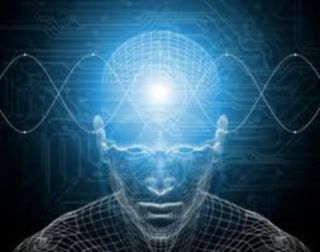Attention
What Is the Role of Consciousness?
You don't need to be conscious when you think about hard problems.
Posted November 12, 2014

You are preparing for your upcoming exam, reading through thousands of pages. Suddenly you realize that you forgot to pay attention to what you actually read. You were reading along but your thoughts were elsewhere. "Good God," you think. "Hours of wasted time." You turn back the pages and start over. This time you make sure you pay close attention.
Research, published in the journal PNAS suggests that you may be wasting even more time by doing that. You don't need attention to comprehend what you read or to do math. In fact, you may not even need consciousness. The researchers, located at Hebrew University, used a technique known as Continuous Flash Suppression (CFS) to suppress consciousness in some 300 research participants for a short period of time. In CFS a series of rapidly changing images is presented to one eye, whereas a constant image is presented to the other. When using this technique, the constant image supposedly is not consciously perceived until after about 2 seconds.
Using this technique to suppress consciousness for a short period of time, the researchers exposed students, unconsciously, to simple equations or text fragments. Immediately afterwards the participants were shown sentences or numbers and were asked to say out loud what they saw. When the number was the result of an equation, the subjects would respond more quickly. For example, if they had been unconsciously exposed to (3+8)+5, they would respond quicker to the number 16 than to an arbitrarily chosen number.
The text fragments shown to the participants were a combination of ordinary and unusual sentences as well as negative and positive expressions. The researchers measured how long it would take for the subjects to become conscious of the phrases. They found that the participants became conscious of the expressions much quicker when the text was negative or unusual. For example, the subjects were quicker to become conscious of expressions such as "the food ate the cat" (unusual) and "riding your car in heavy traffic" (negative) than "the cat ate the food" (ordinary) and "the light turned green" (positive). The team concluded on the basis of their studies that we can complete math problems and read (and comprehend), even when we are not conscious of the equations we solve or the text we read.
There are several potential problems with the conclusions drawn by the researchers. One problem that comes to mind is the immediate jump in reasoning from "unable to report that p" to "unaware that p." Ned Block, Eric Schwitzgebel and many others believe that there can be attentional as well as phenomenal overflow. Or: There can be attention without consciousness and consciousness without attention. Blindsight studies suggest that it is correct that there can be attention without consciousness. Whether there can be consciousness without attention is more controversial but it can't be dismissed out of hand.
A further, only seemingly related, problem is the lack of discussion of what exactly CFS does. It is possible that CFS merely draws the subject's attention to the flickering images without affecting awareness of input to the other eye. It's almost a truism that unusual and negative information can capture attention. So this hypothesis, together with the hypothesis that attention can strengthen electromagnetic signals in the brain, would explain why the participants were quicker to notice unusual and negative facts.
The PNAS results, if taken at face value, however, raise the question of why we need consciousness if not to solve complex problems. Though no one can answer the question of what consciousness really is, philosophers and scientists have speculated that consciousness might play a role in what the Hebrew researchers call "abstract, symbolic, and rule-following computations." If their conclusions are correct, these computations are not among the things we need consciousness for after all.
In our research in the Brogaard Lab for Multisensory Research we have looked at a number of people who apparently engage unconsciously in these kinds of computations. Most of these individuals are people with savant syndrome, a condition that enables the afflicted to perform tasks that appear impossible. Jason Padgett draws complex mathematical patterns by hand based on how he perceives the world. Daniel Kish rides a mountain bike through packed streets despite being blind. Derek Amato plays the piano by following black-and-white musical notation in his head. Lidell Simpson recognizes people in terms of sounds despite being profoundly deaf in both ears.
Nearly all of the subjects we have looked at appear to have special visual imagery associated with their savant skills. Though the subjects are not conscious of how they perform the computations associated with their savantism, they seem to need their special visual imagery to access their unconscious computations. Based on these observations and various other research results, our working hypothesis is that consciousness may play a role in making unconscious computations accessible to people for reporting, decision making, or artistic expression.
If consciousness simply is what Ned Block calls "access consciousness," this conclusion is unsurprising. But part of our hypothesis is that while there is a conceptual difference between access consciousness and phenomenal consciousness, there is no actual difference. So the conclusion should not be read as a restatement of the definition of "access consciousness," but rather as an empirical hypothesis about a role of consciousness in actual human beings.
Photo Credits
The photo is from Wikipedia's public domain.




